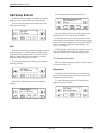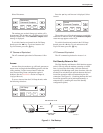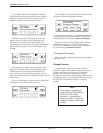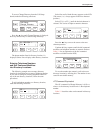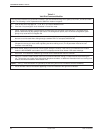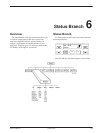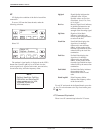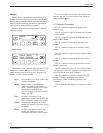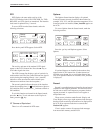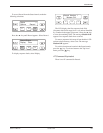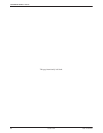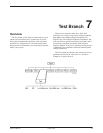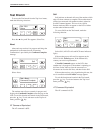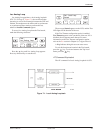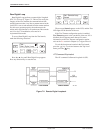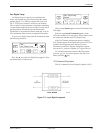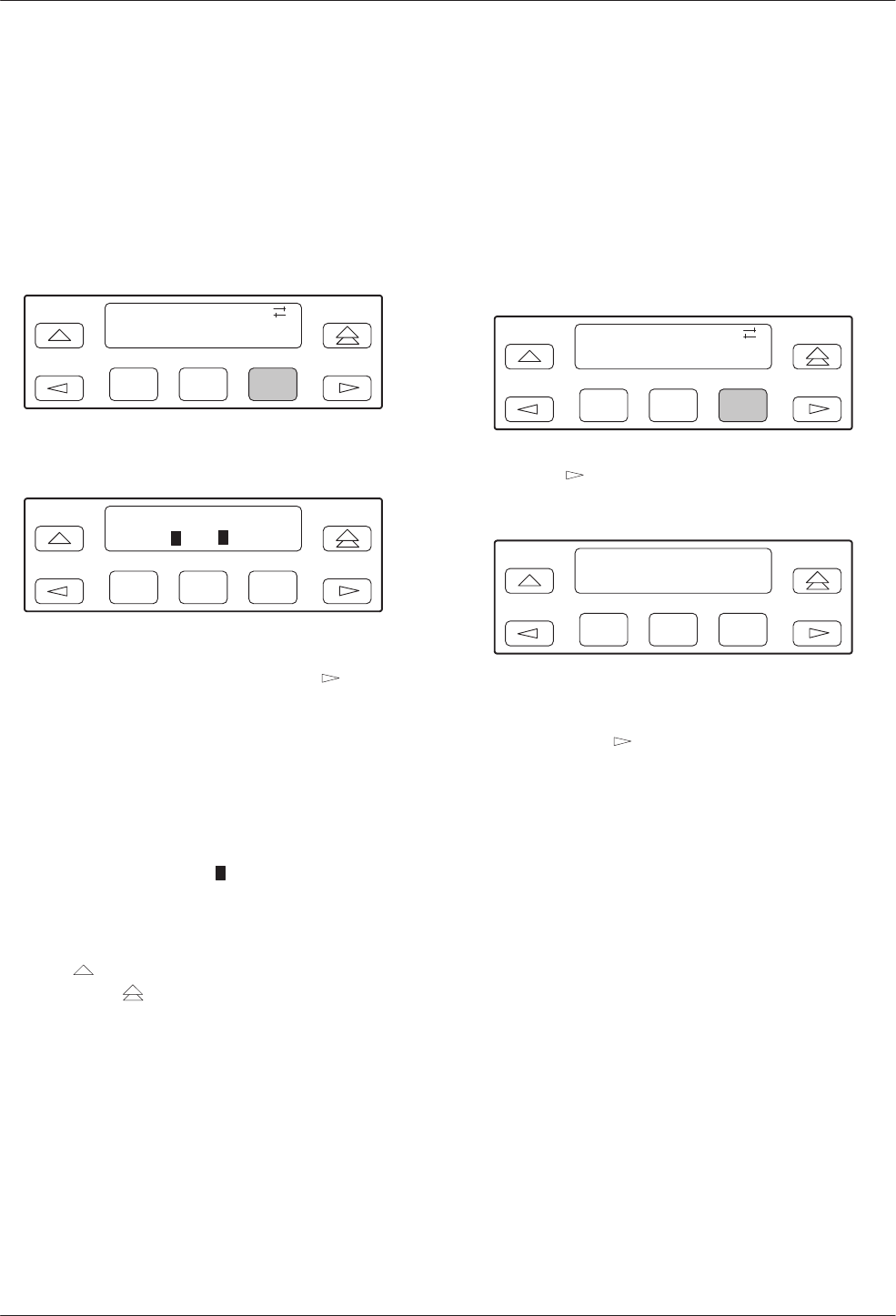
COMSPHERE 3800Plus Modems
6-4 October 1998 3980-A2-GB30-40
DTE
DTE displays the state and/or activity of the
EIA-232-D interface leads: LSD, DTR, DSR, Tst, TXD,
RXD, RTS, and CTS signals are monitored. The interface
leads status is updated every 5 seconds.
To access DTE from the Status branch, make the
following selections:
F1
Status:
Identity DTE
F2
F3
Press the key until DTE appears. Select DTE.
F1
LSD DTR DSR Tst >
_*_
F2
F3
The activity and state of the modem’s DTE signal
appear on the LCD’s bottom line. Press the
key to
scroll other signals into view.
The LCD’s bottom line displays a pair of symbols for
each interface lead. The first symbol indicates the signal’s
activity during the sampling interval. (An * (asterisk)
indicates at least one transition while a blank space
indicates no transitions since the last update.)
The second symbol indicates the state of the interface
lead at the sampling time. (A
block) indicates a Space or
ON condition while an underscore (_) indicates a Mark or
Off condition.)
To exit this function and remain in the Status branch,
press the
key. To exit and return to the Top-Level
menu, press the
key.
AT Command Equivalent
There is no AT command for DTE status.
Options
The Options Status function displays all optional
firmware features currently installed in the modem (for
example, V.29, V.33, and dial network management). If no
firmware options are installed, None_Installed appears on
the LCD.
To access Options from the Status branch, make the
following sections:
F1
Status:
DTE Options
F2
F3
Press the key until Options appears. Select
Options.
F1
Options’ Status >
V.29 V.33
F2
F3
If optional features are installed in the modem, they
appear on the LCD’s bottom line. If other features are
installed, press the
key to scroll other features into
view. If no optional features are installed, None_Installed
is displayed.
Record
Record is a troubleshooting tool used by the end user in
conjunction with support personnel. This function allows
the end user to retrieve and report any sequence faults to
support personnel. A sequence fault is an irregular or
unexpected event.
There are two selections under Record: Display and
Clear. Display allows up to eight sequence fault messages
that have been recorded by the modem to be displayed on
the LCD. If no sequence faults have occurred, then
Modem O.K. appears.
Clear is used to remove all sequence fault messages
from nonvolatile memory and the LCD.



